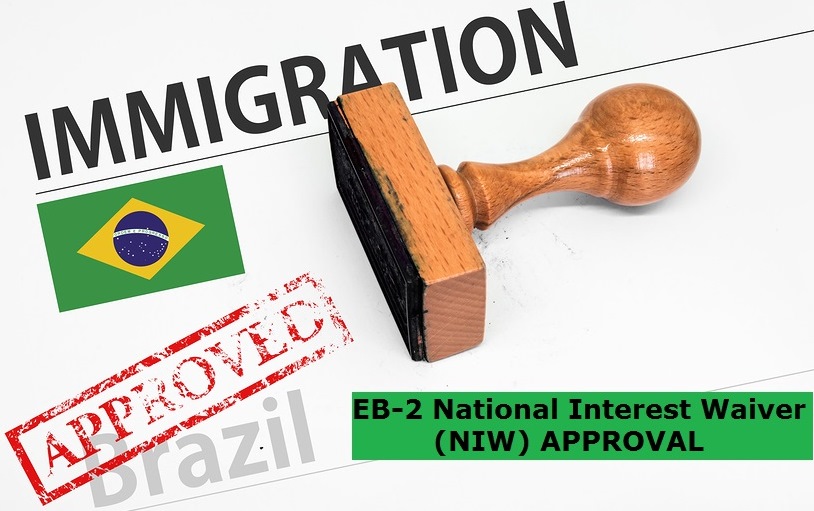Table of Contents
- Understanding the Significance of Recommendation Letters
- Validation of Extraordinary Ability or National Interest
- Expert Testimony
- Comprehensive Insight
- Credibility
- Securing Strong Recommendation Letters
- Choose Your Recommenders Wisely
- Provide Clear Guidance
- Highlight Different Perspectives
- Timely and Complete Submission
- Quality Over Quantity
When pursuing an EB-1 (Employment-Based First Preference) or EB-2 NIW (National Interest Waiver) visa in the United States, one crucial element that can significantly influence the outcome of your application is the recommendation letter. These letters play a pivotal role in helping immigration authorities understand your qualifications, contributions and the value you bring to the nation. In this article, we’ll explore the importance of recommendation letters in EB-1 and EB-2 NIW applications and offer insights into how to secure compelling endorsements.
The significance of recommendation letters in the EB-1 and EB-2 NIW visa application process cannot be overstated. These letters serve as the bridge between your achievements and the immigration authorities, providing valuable context and validation of your qualifications. Let’s delve deeper into why these letters are crucial and how to secure compelling endorsements:
1. Expert Validation: Recommendation letters are typically authored by experts in your field who can attest to your accomplishments and the impact of your work. These experts may include colleagues, mentors, supervisors or renowned figures in your industry. Their endorsement carries weight and credibility, offering an expert perspective on your qualifications.
2. Demonstrating Merit: These letters are a means of demonstrating that you possess the exceptional abilities, achievements or contributions required for the EB-1 or EB-2 NIW visa categories. They offer concrete examples, anecdotes and evidence of your accomplishments, making your case more compelling.
3. Personalized Insights: Recommendation letters have the power to provide personalized insights into your character, work ethic and dedication. They can highlight not only your professional accomplishments but also your qualities as a colleague, researcher or contributor to your field.
4. Contextualizing Achievements: Your achievements may be impressive, but they may not be immediately clear to immigration authorities who are not experts in your specific field. Recommendation letters provide the necessary context to understand the significance of your contributions, making it easier for adjudicators to evaluate your case.
5. Comprehensive Overview: Together, a collection of well-crafted recommendation letters can offer a comprehensive overview of your career, contributions and potential value to the United States. This holistic view strengthens your case and paints a vivid picture of your qualifications.
6. Strategy and Selection: Careful selection of individuals who can write compelling recommendation letters is crucial. Seek out recommenders who have a deep understanding of your work and who can eloquently convey your contributions. Additionally, strategize with your recommenders to ensure they address specific criteria required for the visa category you are pursuing.
7. Timing and Preparation: Adequate time and preparation are essential for securing strong recommendation letters. Approach potential recommenders well in advance, provide them with ample information about your achievements and discuss the key points you’d like them to highlight. This collaborative approach ensures that your recommenders are well-informed and can write powerful endorsements.
In conclusion, recommendation letters are the voice of experts in your field, vouching for your qualifications and contributions. They provide the necessary context for immigration authorities to assess your case accurately. Therefore, when preparing your EB-1 or EB-2 NIW visa application, investing time and effort into securing compelling recommendation letters is a critical step in presenting a strong and persuasive case for your immigration journey to the United States.
Additionally, you can find further information on this topic by visiting this page: National Interest Waiver (NIW) – WeGreened.com – North America …
Understanding the Significance of Recommendation Letters
Recommendation letters are more than just formalities; they are powerful tools that provide a third-party perspective on your achievements and abilities. In the context of EB-1 and EB-2 NIW applications, these letters serve several critical purposes:
Recommendation letters hold immense significance in the context of EB-1 and EB-2 National Interest Waiver (NIW) applications. These letters transcend mere formalities; they are potent instruments that offer an external, objective evaluation of your accomplishments and capabilities. In the intricate world of U.S. immigration, recommendation letters serve multiple pivotal purposes:
1. Independent Validation: Recommendation letters provide independent validation of your extraordinary abilities, contributions and potential impact. They reassure adjudicators that your claims are not self-assessed but are substantiated by respected experts in your field.
2. Comprehensive Insights: Experts who write these letters offer comprehensive insights into your work. They can delve into the technical aspects, the significance of your research and its broader implications. This depth of understanding helps adjudicators evaluate the true value of your contributions.
3. Strengthening the Case: These letters are the linchpin in strengthening your case for eligibility. By showcasing your work through the eyes of recognized authorities, you build a persuasive argument that you indeed meet the stringent criteria for the visa category.
4. Demonstrating Significance: The letters should underscore the significance of your contributions, particularly in terms of their impact on your field, industry or even society at large. This contextualization is crucial in highlighting your importance beyond your immediate sphere of work.
5. Peer Recognition: The reputation of those writing the letters matters significantly. The fact that experts in your field are willing to vouch for your abilities and contributions enhances your credibility and demonstrates peer recognition.
6. Comparative Assessment: In some cases, experts may draw comparisons between your work and that of others in your field. This comparative assessment can underscore the exceptional nature of your contributions and highlight that you stand out among your peers.
7. Clear Articulation: A well-written letter should clearly articulate why you are an exceptional candidate. It should avoid vague or generic statements and instead provide specific examples and details that support the claims being made.
8. Future Impact: Experts can also comment on the potential future impact of your work. This aspect is particularly relevant for EB-2 NIW applicants, as it underscores the national interest aspect of your contributions.
9. Global Perspective: If your work has international significance, it can be beneficial to include experts from both the United States and other countries. Their perspectives can underscore the global importance of your contributions.
10. Multifaceted Evaluation: Recommendation letters provide a multidimensional evaluation of your abilities. They can touch upon your research, publications, innovations, leadership and any other facets that are relevant to your case.
11. Personal Connection: If you have a personal or professional connection with the experts writing the letters, their endorsements may carry more weight. They may be able to provide insights into your character and the impact of your work beyond what is evident on paper.
In sum, recommendation letters are indispensable elements of your EB-1 and EB-2 NIW applications. They serve as persuasive testimonials that substantiate your claims and provide a nuanced understanding of your achievements. The choice of experts and the quality of their endorsements can profoundly influence the outcome of your visa application, making them one of the most critical components of the entire process.
Should you desire more in-depth information, it’s available for your perusal on this page: Frequently Asked Questions for EB2 NIW (National Interest Waiver)
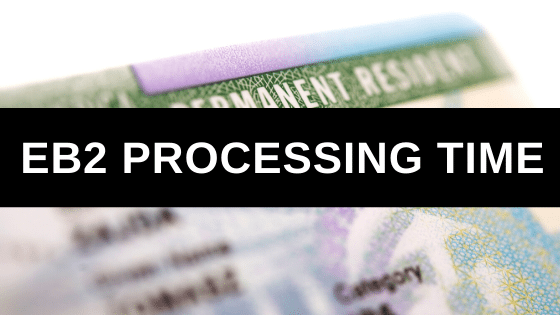
Validation of Extraordinary Ability or National Interest
In EB-1 applications, recommendation letters help corroborate your claim of extraordinary ability in your field. They provide evidence that experts or peers in your industry recognize your exceptional talents and contributions.
In EB-2 NIW cases, recommendation letters contribute to the argument that your work is in the national interest of the United States. They demonstrate that professionals in your field view your work as impactful and vital to the country.
Recommendation letters play a pivotal role in the EB-1 and EB-2 National Interest Waiver (NIW) application processes, offering a comprehensive view of your abilities, achievements and contributions. Here’s an extended perspective on the importance of recommendation letters in these contexts:
Objective Validation: Recommendation letters provide an objective validation of your qualifications and contributions. When experts or peers in your field attest to your extraordinary abilities or the national interest value of your work, it carries substantial weight in the eyes of immigration authorities. This objectivity is crucial in substantiating your claims.
Diverse Perspectives: Recommendation letters often come from a variety of sources, such as colleagues, mentors, collaborators and supervisors. This diversity of perspectives helps create a well-rounded portrait of your abilities and contributions. It demonstrates that your achievements are not isolated but recognized by multiple stakeholders in your professional network.
Detailed Insights: These letters offer detailed insights into your professional journey. They can discuss specific projects, research or contributions you’ve made, providing context for immigration officials. The more specific and concrete the information, the more compelling the case becomes.
Comparative Analysis: In the context of EB-1 applications, recommendation letters often compare your achievements to those of others in your field. This comparison can emphasize the exceptional nature of your accomplishments, showcasing how you stand out among your peers.
Credibility and Trustworthiness: USCIS officers reviewing your application are more likely to trust recommendations from experts in your field. It adds credibility to your claims and minimizes doubts about the authenticity of your qualifications.
National Interest Argument: In EB-2 NIW cases, recommendation letters contribute directly to the argument that your work benefits the national interest of the United States. They provide essential evidence that professionals and experts in your industry view your work as impactful and necessary for the country’s advancement in areas such as science, technology, healthcare or education.
Alignment with USCIS Criteria: Recommendation letters can be strategically crafted to align with USCIS criteria. For example, in EB-1A cases, they can address specific criteria such as “sustained national or international acclaim” or “significant contributions to the field.” In EB-2 NIW cases, they can focus on the “substantial intrinsic merit” and “national benefit” aspects.
Humanize Your Application: Beyond the legal and technical aspects, recommendation letters humanize your application. They provide a glimpse into your character, work ethic and the impact you’ve had on the people you’ve interacted with in your professional journey. This personal touch can make your application more relatable and compelling.
Professional Relationships: The process of obtaining recommendation letters often involves building and nurturing professional relationships. These connections can extend beyond the application process, potentially leading to collaborations, job opportunities or mentorships in the future.
In summary, recommendation letters are not just supporting documents; they are essential components of EB-1 and EB-2 NIW applications. They offer a holistic view of your qualifications, achievements and the impact of your work, helping immigration authorities make informed decisions about your eligibility. As such, it’s crucial to select recommenders who can provide insightful and persuasive letters that align with the specific requirements of the chosen visa category.
Additionally, you can find further information on this topic by visiting this page: Importance of an EB-2 NIW (National Interest Waiver …

Expert Testimony
Letters of recommendation often come from individuals who are experts or authorities in your field. Their opinions carry substantial weight because they are seen as knowledgeable and impartial.
Letters of recommendation are indispensable components of various application processes, as they provide valuable insights and endorsements from individuals who occupy esteemed positions in your field. Let’s delve deeper into the significance of these letters and the factors that make them influential:
1. Expertise and Authority: Letters of recommendation are most impactful when they come from individuals who are recognized experts or authorities in your field. Such recommenders possess not only a deep understanding of the subject matter but also a profound knowledge of the industry’s standards and best practices. Their opinions are regarded as informed and credible, lending considerable weight to your application.
2. Impartial Assessment: The impartiality of recommenders is a crucial element that enhances the credibility of their endorsements. Because they are not personally vested in your success, their assessments are perceived as objective and unbiased. This impartiality reinforces the idea that their recommendations are based solely on your merit and achievements.
3. Validation of Your Abilities: Recommenders play a pivotal role in validating your abilities, skills and achievements. Their firsthand knowledge of your work, contributions and impact on the field allows them to provide specific examples and anecdotes that substantiate your claims. This concrete evidence bolsters the credibility of your application.
4. Insights into Character: Beyond your professional competencies, recommenders often shed light on your character, work ethic and interpersonal skills. These insights can provide a more holistic view of your suitability for a particular role or opportunity. They demonstrate not only what you can do but also how you collaborate and contribute to a team or organization.
5. Comparison and Benchmarking: Recommenders, particularly those with extensive experience in the field, can offer valuable comparisons and benchmarks. They can contextualize your achievements by comparing them to industry standards or the accomplishments of others in the same field. This context enhances the reader’s understanding of your standing in the industry.
6. Risk Mitigation: For employers or immigration authorities, letters of recommendation serve as a risk mitigation strategy. By relying on the assessments of recognized experts, they reduce the uncertainty associated with evaluating candidates or applicants independently. This can be especially crucial when making significant hiring or immigration decisions.
7. Networking and Connections: The process of soliciting letters of recommendation often involves building and nurturing professional relationships. The act of seeking recommendations can expand your network and open doors to new opportunities, collaborations and mentorship.
In essence, letters of recommendation are more than mere formalities in applications; they are powerful endorsements from individuals who possess the knowledge, credibility and experience to vouch for your qualifications and potential. Their insights and assessments can sway decisions in your favor, whether you’re pursuing educational opportunities, career advancements or immigration benefits. Consequently, cultivating relationships with experts and authorities in your field can prove instrumental in your professional journey.
To expand your knowledge on this subject, make sure to read on at this location: NIW Request For Evidence, Request For Evidence (RFE) for EB2 …

Comprehensive Insight
These letters provide a more comprehensive view of your qualifications and contributions than what can be conveyed in your own words. They offer examples, anecdotes and specific details that strengthen your case.
The value of recommendation letters in any application process cannot be overstated, especially when seeking to highlight qualifications and contributions. These letters serve as external endorsements of your abilities, character and achievements, offering a multifaceted perspective that goes beyond what you might convey in your own words.
One of the key advantages of recommendation letters is their ability to provide concrete examples and anecdotes. Colleagues, mentors or supervisors who have worked closely with you can share specific instances where your skills, expertise or character shone. These real-life stories paint a vivid picture of your capabilities and provide evidence of your impact.
Furthermore, recommendation letters often include quantifiable data and metrics to substantiate your achievements. Whether it’s exceeding sales targets, conducting groundbreaking research or leading a successful team project, these letters can cite numerical results that demonstrate the tangible outcomes of your work. Such data adds credibility and persuasiveness to your application.
Recommendation letters also offer an external perspective on your character and professional demeanor. They can comment on your work ethic, reliability, adaptability and interpersonal skills. These insights provide a well-rounded portrait of you as an individual and a professional, allowing reviewers to assess your qualifications from multiple angles.
Additionally, recommendation letters have the power to address potential concerns or gaps in your application. If there are specific areas where you excel or unique attributes that set you apart, these letters can highlight them, assuaging any doubts or questions reviewers may have.
It’s important to note that not all recommendation letters are created equal. The credibility and authority of the recommender can significantly impact the weight of the letter. Letters from respected figures in your field or supervisors from renowned organizations can carry considerable influence.
While recommendation letters play a crucial role in strengthening your case, they are most effective when aligned with your own narrative. Ensuring that your application materials, personal statements and the content of recommendation letters are consistent and cohesive reinforces the message you want to convey.
In conclusion, recommendation letters are invaluable assets in any application process. They provide a depth and breadth of perspective that your own words alone cannot achieve, offering examples, anecdotes, specific details and external validation of your qualifications and contributions. These letters contribute to a more robust and convincing case for your candidacy.
To expand your knowledge on this subject, make sure to read on at this location: EB-1 and EB-2 NIW Green Card Visa Program

Credibility
Immigration authorities may be unfamiliar with the intricacies of your profession. Recommendation letters from established professionals can lend credibility to your claims and make your achievements more understandable and credible.
Navigating the immigration process, especially in specialized fields, often involves communicating the unique intricacies of one’s profession to immigration authorities who may not have expertise in that area. To overcome this challenge, recommendation letters from established professionals can play a pivotal role in not only lending credibility to your claims but also making your achievements more comprehensible and persuasive. Here’s an extended exploration of this concept:
Expert Validation: Recommendation letters from established professionals carry the weight of expert validation. These individuals, who are recognized in their respective fields, can vouch for your qualifications, expertise and contributions. Their endorsements serve as a form of peer review, attesting to the legitimacy of your claims.
Clarifying Complexity: In many specialized fields, the nature of work can be intricate and esoteric. Immigration authorities may struggle to grasp the significance of your achievements without expert guidance. Recommendation letters can provide context and clarity, explaining the importance of your work in a manner that is accessible to non-specialists.
Translation of Expertise: Professionals in your field can act as translators of your expertise. They can bridge the gap between technical jargon and layman’s terms, ensuring that immigration officials understand the impact and relevance of your contributions. This translation is vital for a successful application.
Highlighting Impact: Established professionals can emphasize the real-world impact of your work. They can illustrate how your research, inventions or innovations have made a difference in your field and, in some cases, society at large. This impact narrative can be compelling evidence of your value.
Comparative Analysis: Recommendation letters can draw comparisons between your work and that of others in your field. By showing how your contributions stack up against established benchmarks or standards, they can underscore your achievements and unique standing.
Addressing Doubts: Immigration authorities may have doubts or questions about the authenticity of your claims or the importance of your work. Recommendation letters can preemptively address these doubts, providing a persuasive case for your qualifications and contributions.
Demonstrating Recognition: If the individuals writing the recommendation letters are themselves well-known or respected in their fields, their association with your application can be significant. It demonstrates that your achievements are recognized and respected by peers in the profession.
Professional Network: Recommendation letters can also demonstrate your integration into the professional network of your field. They show that you have established relationships with other experts and that your work is valued within the community.
Multifaceted Perspective: Collecting recommendation letters from a variety of established professionals can provide a multifaceted perspective on your contributions. Each recommender can highlight different aspects of your work and its significance.
Holistic Evaluation: Immigration authorities often conduct a holistic evaluation of applicants. Recommendation letters complement other forms of evidence, such as publications or awards, by providing a qualitative assessment of your qualifications and contributions.
In summary, recommendation letters from established professionals serve as a crucial tool for overcoming the challenge of conveying the intricacies of your profession to immigration authorities. They add credibility, clarity and expert validation to your application, making your achievements more understandable and persuasive. Leveraging the support of respected peers can significantly enhance your prospects in the immigration process.
Looking for more insights? You’ll find them right here in our extended coverage: O-1 and EB-1A. The matter of Recommendation Letters – Passright
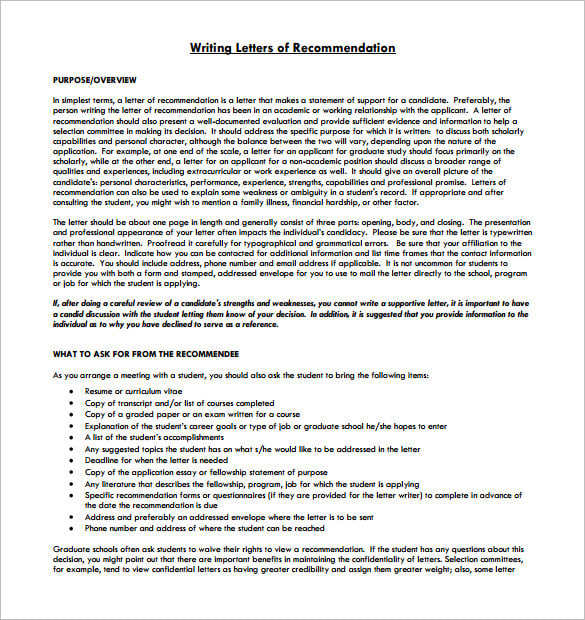
Securing Strong Recommendation Letters
To ensure that your recommendation letters enhance your EB-1 or EB-2 NIW application, consider these guidelines:
To ensure that your recommendation letters play a pivotal role in strengthening your EB-1 or EB-2 NIW (National Interest Waiver) application, it’s crucial to adhere to these essential guidelines:
Select Knowledgeable Recommenders: Choose recommenders who have a deep understanding of your work and contributions in your field. Ideal recommenders are well-respected professionals, mentors or experts who can offer a credible assessment of your exceptional abilities or the national interest value of your work.
Highlight Your Impact: Work closely with your recommenders to ensure they emphasize the significant impact you’ve had in your field. Encourage them to provide specific examples, data or projects that showcase your contributions, innovations and influence.
Tailor Each Letter: Customize recommendation letters for the specific visa category you are applying for (EB-1 or EB-2 NIW). Ensure that the content aligns with the criteria and requirements of the chosen category, whether it’s based on your extraordinary ability or national interest value.
Provide Detailed Information: Furnish your recommenders with comprehensive information about your work, accomplishments and the visa category you’re pursuing. This can include your CV or resume, publications, awards and any relevant background information to help them craft detailed and compelling letters.
Request Early and Respect Deadlines: Approach your recommenders well in advance of your application deadline. Respect their time and availability by requesting letters with ample notice. Inform them of your application deadline and any specific points they should address in their letters.
Highlight Diversity of Support: If possible, obtain recommendation letters from a variety of sources, such as colleagues, supervisors, collaborators and experts in your field. Diverse support can reinforce the breadth and significance of your contributions.
Emphasize Your Uniqueness: Encourage your recommenders to emphasize what sets you apart from your peers or colleagues. Highlight unique qualities, accomplishments or contributions that make you stand out in your field or in terms of national interest.
Focus on Qualifications: Ensure that your recommenders address the specific qualifications and criteria relevant to the visa category. For example, in an EB-1 application, they should address the criteria related to extraordinary ability or international acclaim.
Consistency and Cohesion: While each recommendation letter should be unique, they should collectively form a cohesive narrative about your exceptional abilities or the national importance of your work. This narrative should align with your personal statement and other supporting documents.
Express Gratitude: Thank your recommenders for their time and effort. Acknowledge their contributions to your application and express your appreciation for their support.
Proofread and Edit: Review the content of each recommendation letter for accuracy, clarity and consistency. Ensure that all factual information is correct and that the language is professional and persuasive.
Collect and Organize Letters: Once you receive the recommendation letters, organize them carefully and include them in your visa application package, following the specific formatting and submission guidelines provided by USCIS.
By adhering to these guidelines, you can harness the full potential of your recommendation letters to bolster your EB-1 or EB-2 NIW application. These letters are a critical component of your case, providing independent validation of your qualifications and the importance of your work, ultimately strengthening your chances of a successful visa application.
Additionally, you can find further information on this topic by visiting this page: How to Apply for an EB-2 NIW Visa – Boundless

Choose Your Recommenders Wisely
Select individuals who are well-respected in your field and have direct knowledge of your work. These can be supervisors, colleagues, mentors or collaborators.
When assembling a list of individuals to vouch for your abilities and accomplishments, it’s essential to choose those who not only hold a respected position in your field but also possess a deep understanding of your work. These individuals play a pivotal role in validating your achievements and bolstering your credibility, making your case for recognition or advancement more compelling.
Supervisors: Supervisors are often excellent choices because they have had direct oversight of your work. They can provide insights into your professional growth, project contributions and how your efforts have positively impacted your organization. Their endorsement carries weight as they can attest to your skills and dedication from a managerial perspective.
Colleagues: Colleagues who have closely collaborated with you on projects or shared professional experiences can provide a different perspective. They can speak to your teamwork, problem-solving abilities and the value you bring to collaborative efforts. Their testimonials can underline your ability to work effectively within a group.
Mentors: Mentors, especially those who have guided you through significant career milestones, can provide a unique perspective on your growth and potential. Their endorsement can highlight your ability to absorb knowledge and apply it effectively, showcasing your commitment to personal and professional development.
Collaborators: Individuals you’ve collaborated with on research, creative projects or initiatives can emphasize your impact within a broader context. They can discuss the outcomes of your collaborative efforts, how your work has advanced a field and the recognition your projects have received.
Clients or Partners: If applicable, clients or partners from outside your organization can also serve as valuable references. Their testimonials can speak to the quality of your work, your professionalism and your ability to meet or exceed their expectations.
Industry Thought Leaders: If you’ve had the privilege of working with or receiving recognition from prominent figures or thought leaders in your industry, their endorsements can be particularly influential. Their status and credibility can reflect positively on your achievements.
Subject Matter Experts: Depending on your field, experts with deep knowledge in a specific area can provide valuable insights into the significance of your work within that niche. Their endorsement can highlight your specialization and contributions to a specific subfield or discipline.
When approaching these individuals for recommendations or endorsements, it’s essential to establish a strong rapport and maintain professional relationships. Clear communication about the purpose of their endorsement, the specific qualities or achievements you’d like them to emphasize and the timeline for their support will help ensure that their testimonials are impactful and align with your goals. Ultimately, the collective voice of these respected individuals can significantly strengthen your reputation and open doors to new opportunities in your career.
Don’t stop here; you can continue your exploration by following this link for more details: https://web.mit.edu/adamrose/Public/googlelist
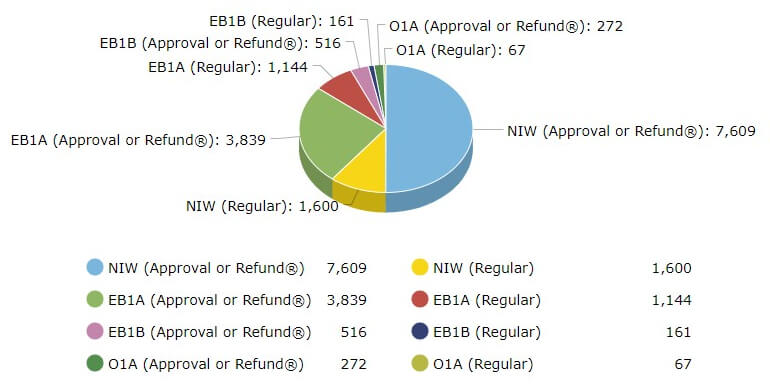
Provide Clear Guidance
Offer your recommenders specific information about the purpose of the letter and what qualities or contributions you would like them to highlight.
When approaching individuals to write recommendation letters on your behalf, it’s not only courteous but also highly effective to provide them with specific information about the purpose of the letter and the qualities or contributions you would like them to highlight. Here’s why this approach can be beneficial and how to go about it:
Clarity of Purpose: By clearly articulating the purpose of the recommendation letter, you ensure that the writer understands the context and significance of their role in your application process. Whether you’re applying for a job, educational program or scholarship, explaining the specific requirements and expectations can help them tailor their letter accordingly.
Highlighting Relevant Qualities: Recommenders may know you well, but they might not be aware of the particular qualities, skills or experiences that are most relevant to your application. Providing guidance allows you to emphasize the aspects of your background that align with the position or opportunity you’re seeking. For example, if you’re applying for a leadership role, you can request that they highlight your leadership skills and accomplishments.
Consistency and Coherence: When recommenders are aware of the key qualities or contributions you want them to focus on, it ensures a consistent and coherent message across all your recommendation letters. This can strengthen your application and make it more compelling to the selection committee.
Efficiency: Recommenders are often busy individuals and providing them with specific guidance can save them time and effort in composing the letter. This makes the process smoother for both you and the recommender.
Here’s how to offer guidance effectively:
Compose a Request: Start by writing a polite and clear request for a recommendation letter. Express your gratitude for their willingness to help and briefly explain the purpose of the letter (e.g., job application, scholarship, graduate program).
Provide Context: Offer some context about the opportunity you’re pursuing. Explain why it’s important to you and how it fits into your career or academic goals.
Specify Qualities or Contributions: Outline the specific qualities, skills or contributions you would like them to highlight. Be as precise as possible. For instance, you could mention your teamwork skills, problem-solving abilities or significant projects you’ve worked on together.
Share Relevant Information: If there are specific achievements, awards or experiences that are relevant to the recommendation, share them with your recommender. This ensures they have accurate and up-to-date information.
Offer to Help: Let them know that you’re available to answer any questions or provide additional information if needed. This demonstrates your commitment to the process.
By taking the initiative to guide your recommenders, you not only facilitate the writing process but also increase the likelihood of receiving recommendation letters that align perfectly with your goals and aspirations. This thoughtful approach can significantly enhance your application’s strength and impact.
For a comprehensive look at this subject, we invite you to read more on this dedicated page: Frequently Asked Questions for EB2 NIW (National Interest Waiver)

Highlight Different Perspectives
Aim for diversity in your recommenders. Having letters from various sources, such as colleagues, mentors and collaborators, can provide a more comprehensive view of your abilities and impact.
When seeking recommendation letters, it’s essential to aim for diversity among your recommenders. Diversity in this context doesn’t just refer to demographic factors but, more importantly, to the breadth of perspectives and experiences your recommenders can bring to the table.
First and foremost, having letters from colleagues who have worked closely with you provides valuable insights into your professional abilities and work ethic. They can attest to your day-to-day performance, your teamwork skills and your ability to collaborate effectively within your current work environment. Their letters can serve as solid endorsements of your practical skills and contributions.
Mentors, on the other hand, offer a unique perspective on your growth and potential. These individuals have likely guided your career, provided valuable advice and observed your development over time. Their letters can shed light on your long-term potential, leadership qualities and capacity for growth, giving the admissions committee a glimpse into your journey and your potential for future success.
Collaborators, especially those from different projects or disciplines, bring diversity to your application. These letters can demonstrate your adaptability and interdisciplinary skills, highlighting your ability to excel in various contexts. They can showcase your versatility, creativity and your capacity to bring a fresh perspective to different challenges.
Incorporating diverse recommenders not only provides a comprehensive view of your abilities but also sends a powerful message about your versatility and adaptability. It shows that you can thrive in various professional settings and that your qualities and impact extend beyond a single domain or relationship.
Furthermore, diversity in your recommenders’ backgrounds and perspectives can make your application more relatable and engaging to the admissions committee. They can draw a fuller picture of who you are as a candidate, reinforcing your strengths and potential contributions to the academic or professional community you’re seeking to join.
In summary, when soliciting recommendation letters, consider the breadth of perspectives your recommenders can offer – from colleagues who know your day-to-day work to mentors who have guided your career and collaborators who have seen your adaptability. This diversity enhances the richness of your application and underscores your potential as a well-rounded and adaptable candidate.
To delve further into this matter, we encourage you to check out the additional resources provided here: Fiscal Year 2022 Employment-Based Adjustment of Status FAQs …

Timely and Complete Submission
Ensure that your recommenders submit their letters in a timely manner and in accordance with the application instructions. Missing or late letters can adversely affect your case.
Securing strong letters of recommendation is a critical component of any application process and when it comes to important milestones like job applications, academic admissions or immigration filings, their significance cannot be overstated. Beyond simply obtaining these letters, the timing and adherence to application instructions are equally crucial.
Firstly, it’s imperative to approach your recommenders well in advance of any deadlines. Building a strong rapport with your recommenders and giving them sufficient time to craft thoughtful, detailed letters is key. Rushed or last-minute requests can lead to hastily written letters that may not adequately represent your qualifications and achievements.
Additionally, make sure your recommenders are well-informed about the specific requirements and expectations of the application. Providing them with a clear understanding of the program or position you’re applying for, as well as any guidelines or templates provided by the institution or organization, can significantly enhance the quality and relevance of the letters.
Timing is critical. Request your letters well ahead of the deadline, allowing your recommenders ample time to complete and submit them. It’s advisable to follow up with gentle reminders as the deadline approaches to ensure that the letters are submitted on time.
Late or missing letters can have detrimental consequences for your application. They may lead to your application being considered incomplete or not given the thorough evaluation it deserves. This could potentially result in missed opportunities or, in the case of immigration applications, delays and setbacks in your journey.
In conclusion, while securing strong letters of recommendation is essential, the process goes beyond just obtaining them. Ensuring that your recommenders understand the requirements and deadlines and giving them the time and support they need, can make a significant difference in the success of your application. By being proactive and organized in this aspect of the application process, you can maximize your chances of achieving your academic, professional or immigration goals.
To expand your knowledge on this subject, make sure to read on at this location: Legal Fees of EB2-NIW
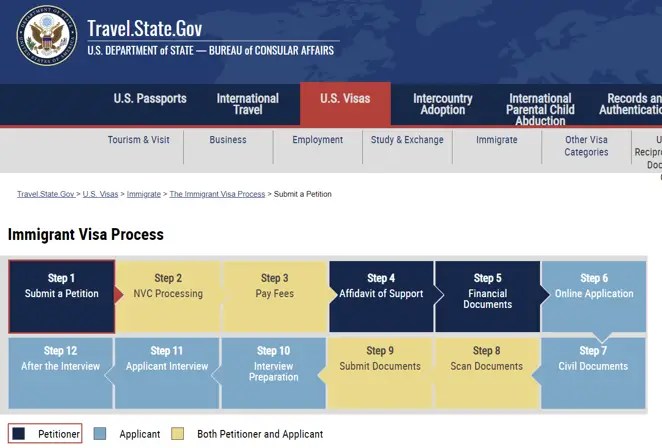
Quality Over Quantity
While the number of recommendation letters is important, the quality and depth of the content matter more. A few well-crafted, detailed letters can carry more weight than numerous generic ones.
In various aspects of life, quality often outweighs quantity and this principle holds true when it comes to recommendation letters. While the sheer number of letters may seem significant, it’s the richness and depth of the content that truly makes a difference.
Consider this: a few meticulously crafted recommendation letters, each brimming with specific examples and heartfelt endorsements, can carry far more weight than a stack of generic, run-of-the-mill ones. These standout letters not only provide a thorough understanding of your skills, character and accomplishments but also offer valuable insights into your unique qualities and the impact you’ve had in your field or community.
Quality recommendation letters go beyond mere endorsements; they paint a vivid picture of your contributions and potential. They highlight your accomplishments in a way that resonates with the reader, showcasing the tangible benefits you bring to the table. They can convey your passion, dedication and the qualities that set you apart from the crowd.
In contrast, generic or superficial letters lack the depth needed to make a lasting impression. They may touch on basic qualifications but fail to capture the essence of who you are and what you’re capable of achieving. Admissions committees, employers or decision-makers are more likely to be swayed by insightful, personalized letters that provide a clear and compelling narrative about you.
So, when seeking recommendation letters, it’s not about collecting as many as possible; it’s about seeking out individuals who truly know you and your work and can provide a thoughtful, detailed and enthusiastic endorsement. Remember that it’s the quality and depth of the content that will ultimately leave a lasting impact and help you stand out in the competitive arenas of academia, employment or any other pursuit.
To expand your knowledge on this subject, make sure to read on at this location: FAQ on national interest waiver requirements, recommendation …

In EB-1 and EB-2 NIW applications, recommendation letters are invaluable assets that can help you achieve your immigration goals. They provide external validation of your qualifications and contributions, adding credibility and depth to your case. By carefully selecting your recommenders and guiding them effectively, you can maximize the impact of these letters and increase your chances of success in securing an EB-1 or EB-2 NIW visa.
In EB-1 and EB-2 NIW applications, recommendation letters are invaluable assets that can help you achieve your immigration goals. They provide external validation of your qualifications and contributions, adding credibility and depth to your case. By carefully selecting your recommenders and guiding them effectively, you can maximize the impact of these letters and increase your chances of success in securing an EB-1 or EB-2 NIW visa.
The significance of recommendation letters in the immigration process cannot be overstated. These letters serve as a bridge between your achievements and the evaluation of immigration authorities. They offer a third-party perspective on your abilities, attesting to the fact that your skills and expertise are not just self-proclaimed but recognized and respected by experts in your field.
Selecting the right recommenders is a critical step in this process. Ideally, your recommenders should be individuals who have had direct professional interactions with you and can speak to the specific qualities that make you an exceptional candidate. This might include professors, colleagues, supervisors or industry peers who have witnessed your contributions firsthand.
Furthermore, guiding your recommenders effectively is equally important. They need to understand the nuances of the EB-1 and EB-2 NIW criteria and tailor their letters accordingly. Providing them with a clear outline of what should be included, such as your unique contributions, impact on your field and the significance of your work to the national interest, can help ensure that their letters align with the immigration standards.
It’s also essential to communicate the timeline and importance of their role in your application. Timely submission of these letters is crucial, as any delay can potentially affect the processing of your application.
Remember that recommendation letters are not mere formalities; they are powerful tools that can sway the outcome of your immigration journey. When these letters eloquently articulate your exceptional qualifications and contributions, they provide a compelling narrative that can significantly boost your chances of success.
In summary, recommendation letters are the external voices that vouch for your worthiness as an EB-1 or EB-2 NIW candidate. By selecting the right recommenders, guiding them effectively and ensuring the timely submission of their letters, you can harness the full potential of these invaluable assets in your quest to secure your desired visa and pursue your dreams in the United States.
If you’d like to dive deeper into this subject, there’s more to discover on this page: O-1 and EB-1A. The matter of Recommendation Letters – Passright
More links
To expand your knowledge on this subject, make sure to read on at this location: O-1 and EB-1A. The matter of Recommendation Letters – Passright
